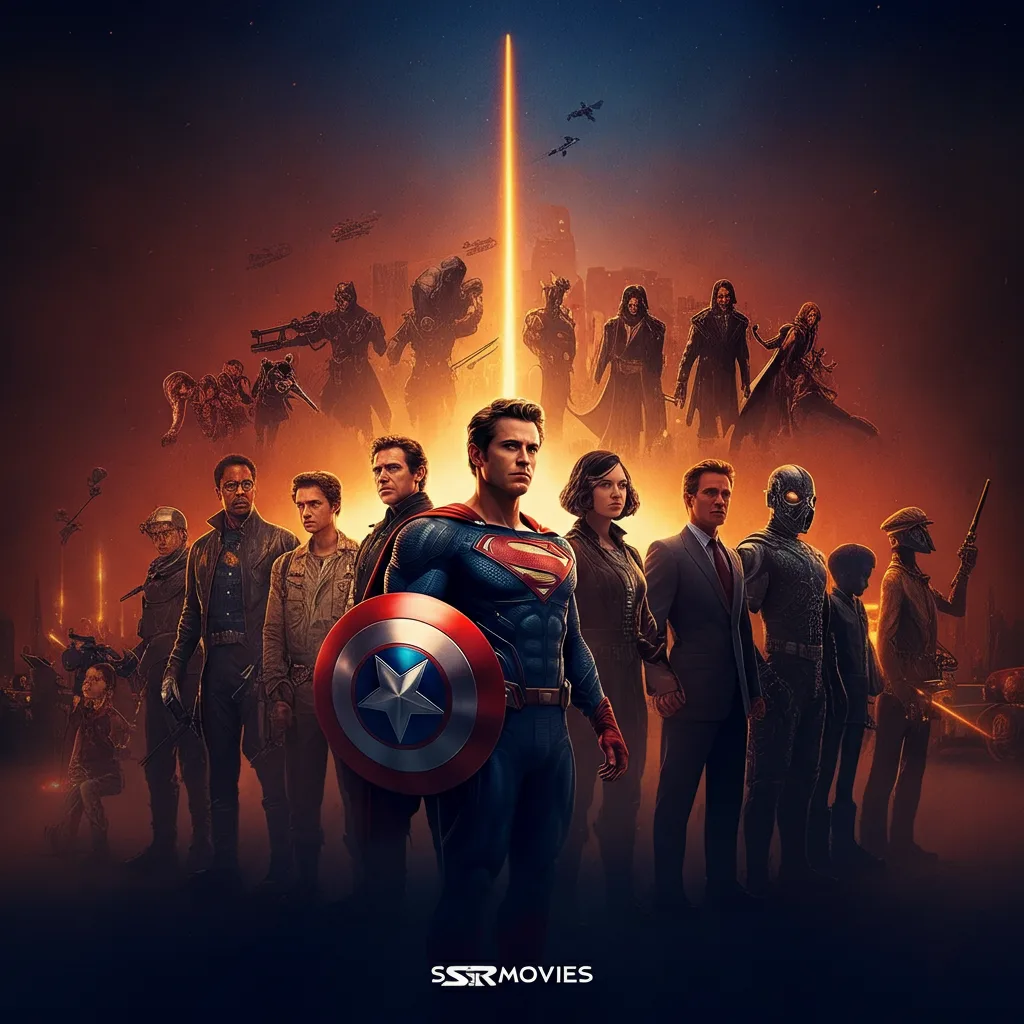Cinematic universes have become a dominant force in the world of entertainment, enticing audiences with expansive worlds and interwoven storylines. But what makes them so appealing, and why do some succeed while others flop? This blog dives into the history, success factors, failures, and future of cinematic universes. Whether you’re a curious moviegoer or a die-hard fan, we’re here to unpack what works, what doesn’t, and what lies ahead.
The Allure of Cinematic Universes
At their core, cinematic universes are interconnected storytelling vehicles that span multiple films (and sometimes TV shows) within the same world. They allow narratives to stretch beyond a single film, offering fans a chance to immerse themselves in an endless well of characters, stories, and settings.
But why are they so captivating? First, they tap into one of our deepest desires as viewers—to explore a fictional world in greater depth. They also incentivize fandom. After all, who doesn’t want to catch Easter eggs, follow their favorite characters across different titles, and engage with complex story arcs? The appeal lies in the potential for limitless storytelling possibilities.
A Brief History of Cinematic Universes
The idea of a shared cinematic universe isn’t a new concept. Way back in the 1930s and 1940s, Universal Pictures brought its famous monsters to life in films like “Dracula” (1931) and “Frankenstein” (1931). These movies eventually crossed over in what could be considered the first cinematic universe, featuring team-ups like the iconic “Frankenstein Meets the Wolf Man” (1943).
Fast forward to the modern blockbuster age, one of the most notable and influential attempts came with the formation of the Marvel Cinematic Universe (MCU). Starting with “Iron Man” (2008) and culminating in box-office juggernauts like “Avengers: Endgame” (2019), the MCU set a gold standard for how to do it right.
Others, however, weren’t as lucky. Take Universal’s Dark Universe or even Sony’s Amazing Spider-Man series, both of which failed to launch into fully realized universes. This begs the question, why do some efforts thrive while others falter?
The Ingredients for a Successful Cinematic Universe
What sets one cinematic universe apart from another? Here are the key factors that contribute to long-term success:
1. Compelling Characters
Strong characters are non-negotiable for any cinematic universe. These are individuals the audience wants to root for, follow across multiple stories, and invest in. Characters like Iron Man (Robert Downey Jr.) or Wonder Woman (Gal Gadot) became cultural icons not just because of their powers, but because they were well-rounded, flawed, and relatable.
2. Coherent Storytelling
A cinematic universe relies on a solid narrative foundation. Every installment must not only function as a standalone story but also contribute to a larger, cohesive plotline. The MCU’s approach of gradually weaving interconnected stories—with the Infinity Stones serving as a unifying element—is often cited as a masterclass in storytelling.
3. Visionary Leadership
Behind every successful cinematic universe is a visionary who understands the importance of long-term planning. This person bridges creative and business decisions, ensuring continuity and innovation. Kevin Feige, as the architect of the MCU, is often credited with this ability.
4. Fan Engagement
Cinematic universes thrive when fans stay engaged. Easter eggs, hidden connections, and rich lore keep the audience invested. For many franchises, building hype between releases is just as critical as the movies themselves.
5. Balancing Franchises Without Overloading Audiences
Sometimes, less is more. Cinematic universes can falter if they oversaturate their audiences with too many releases in too short a time. Quality, timing, and spacing out releases are just as crucial as ambitious plans.
Lessons from Cinematic Universe Case Studies
To truly understand what works and what doesn’t, it’s worth looking at examples of successful and failed cinematic universes.
Successful Cinematic Universes
1. Marvel Cinematic Universe (MCU)
The MCU is the undisputed king of cinematic universes. What makes it thrive? It began with clear, small goals, introducing characters individually before tying them together in “The Avengers” (2012). Importantly, it keeps evolving, switching tones, genres, and story arcs to keep audiences engaged.
2. Harry Potter Wizarding World
Expanding on J.K. Rowling’s magical world, this universe successfully transitioned into spinoffs like the “Fantastic Beasts” series. While the second series didn’t fully emulate the main saga’s success, strong foundations and franchise recognition kept audiences engaged.
Unsuccessful Attempts
1. Universal’s Dark Universe
Universal had plans for an interconnected monster universe with A-list stars like Tom Cruise and Russell Crowe. Unfortunately, “The Mummy” (2017), the supposed lynch-pin, bombed with critics and audiences alike. Ambition without coherent storytelling or strong characters doomed the Dark Universe before it had a chance.
2. DC Extended Universe (DCEU)
The DCEU struggled from the start with tone inconsistency and attempts to match the MCU’s rapid pace. While some films like “Wonder Woman” and “Aquaman” shined, overall the cinematic universe lacked cohesion, often feeling rushed and disjointed.
Emerging Contenders
Streaming platforms like Disney+ and HBO Max are revamping cinematic universes using episodic storytelling. Star Wars’ ongoing success through shows like “The Mandalorian” is challenging the line between movies and TV.
The Future of Cinematic Universes
The future of cinematic universes lies largely in diversification. Streaming services, for instance, are redefining what a “universe” looks like. Cross-medium platforms now have the capacity to tell stories in series, video games, and VR.
Additionally, artificial intelligence (AI) could play a role in creating personalized cinematic experiences. Tools like SSRmovies are already altering the entertainment landscape, making it easier for fans to discover and interact with content.
Finally, as cinematic universes grow, they will likely face increasing pressure to diversify characters and appeal to wider audiences. Inclusivity and representation will no doubt become even more critical for broader global success.
Why Cinematic Universes Matter
Cinematic universes have reshaped storytelling as we know it. They’ve elevated franchises, created global cultural moments, and sparked entire industries of merchandise and fan theory videos. But, as history shows, building one isn’t easy.
By mastering the art of creating complex characters and maintaining coherent narratives, filmmakers can not only entertain but also build lasting connections with audiences. For fans, these universes are a form of escapism, a chance to dream big in worlds where anything feels possible.
Are you ready to explore cinematic universes with a fresh perspective? Share your thoughts in the comments below and tell us your all-time favorite cinematic universe!


